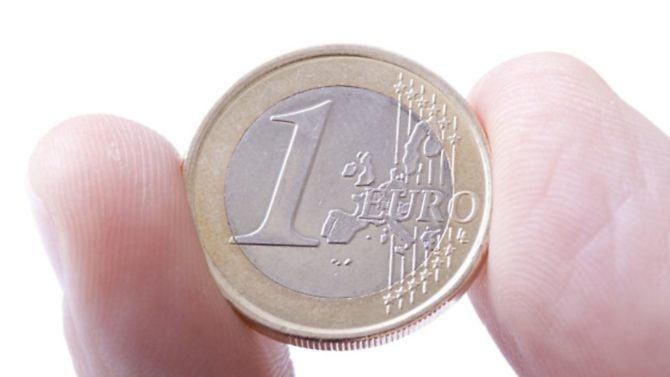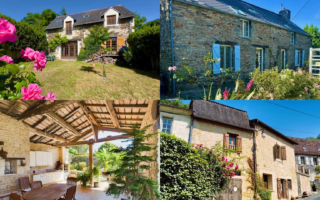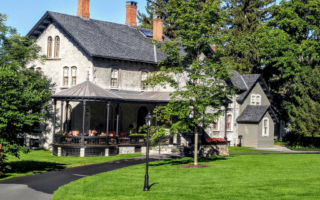French property buying guide part 3: mortgages and currency contracts


It’s not just about negotiating the best sale price; clever use of mortgages and currency contracts can save you money or even extend your budget
Of course, money is at the heart of any French property purchase – your budget will decide what and where you buy, after all, and unless you have more money than sense, you’ll be looking carefully at getting the most out of it.
Not so obvious as property prices, but often just as key, is how you pay for your property – issues such as whether you use a mortgage or are a cash buyer, or use a currency exchange company or your high-street bank, can make a significant difference to the property you end up with and the payments you’ll have to make.
Financing your property
While being a cash buyer is a good position to be in, especially when it comes to negotiating on the price, it can sometimes make more sense to use a mortgage, even when you don’t need to, so it’s always worth considering.
French mortgage rates are really competitive at the moment, in fact they’re the lowest they have been since World War II. You do have to submit proof of your income and outgoings, however, as French lenders assess your capacity to repay the mortgage on your ability to do so. In general, your monthly outgoings (including your new mortgage payments) should amount to no more than 33% of your gross monthly income (rental income can also be considered).
For non-French residents, the maximum loan-to-value available is 85% of the purchase price (including agency fees but not notaire’s fees). Various mortgage products are available, including interest-only and repayment on a variable or fixed-rate basis, or a combination of both. Terms range from six to 40 years, but loans must be repaid by the age of 80.
It is advisable to use the services of a specialist mortgage broker as they are familiar with the ins and outs of the French mortgage market and can advise you on the best products for your particular situation.
If you’re in the lucky position where you have the cash to fund your purchase, you can always take out a mortgage to benefit from the advantageous rates, and then pay all or some of it off in future when currency exchange rates are more favourable. Many French mortgages don’t have early redemption penalties but obviously it is wise to check this when you apply if you are considering paying it off before the end of the loan.
You can, of course, take out a second mortage on your UK home, which might protect you against currency movements if your income is in sterling (i.e. you have the same monthly payment regardless of exchange rates). However, it is generally considered to be safer to fund a property paid for in euros with a euro mortgage, as there is a risk that when you come to sell the property, the proceeds may not be enough to repay the loan if exchange rates go the ‘wrong’ way.
Note that while French mortgage rates are more attractive than those in the UK, a French mortgage is likely to cost more to set up due to various costs such as bank fees and mortgage registration tax.
Exchange rates
Traditionally people headed to their high street bank when exchanging currency but with so many dedicated foreign exchange companies in the market today, there’s no reason to pay more for your euros than you need to.
The difference between a favourable exchange rate and a poor one can amount to several thousand euros, depending on the value of the property. It can bring properties you thought were too expensive within reach or could give you extra cash to spend on doing up the property to your own tastes.
There are various currency contracts you can take advantage of, to help you secure the best rate possible when you need to swap your pounds for euros, the main ones being spot contracts and forward contracts.
• Spot contract: this involves securing your currency ‘on the spot’, at a live rate, i.e. an immediate purchase at an agreed exchange rate so funds must be available at the time (or within two days).
• Forward contract: this protects you from adverse currency movements as you are able to ‘lock’ in to a favourable exchange rate, which works particularly well for property transactions as it usually takes a few months between signing the sales contract (compromis de vente) and completion.
Added extras
Don’t forget to budget for hidden extra costs, such as buying costs, for example. These include agency and notaire’s fees, and add up to around 15% of the purchase price (notaire’s fees are on a sliding scale, agents are free to set their own fees).
Typically, French property adverts say FAI (frais d’agence inclus), meaning the price includes the agents’ fees, i.e. the the buyer pays the fees. Where it says net vendeur, it only includes the sale price, not the agents’ fees.
If you are buying a new property, you will have to pay 19.6% VAT, although this is often included in the sale price (and is refunded if the property is a leaseback purchase).
Other costs to budget for include surveys (if you have one) and legal fees if you engage the services of a solicitor in addition to the notaire.
You will also need to consider ongoing costs, such as utilities, maintenance, insurance, service charges if applicable, and property taxes (taxe d’habitation and taxe foncière).
Read our other buying guides on:
What and where: 6 things to consider
Share to: Facebook Twitter LinkedIn Email


